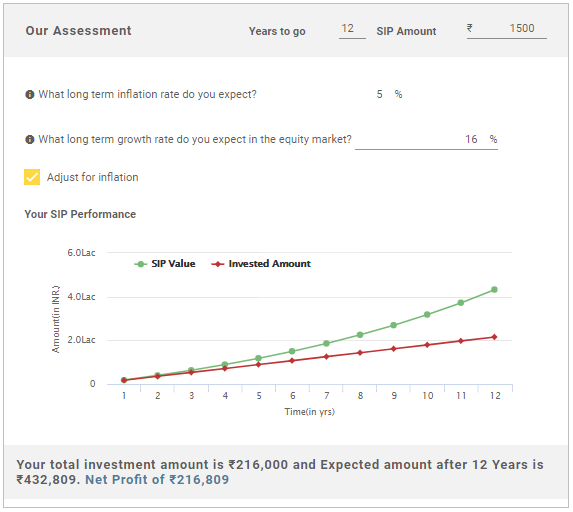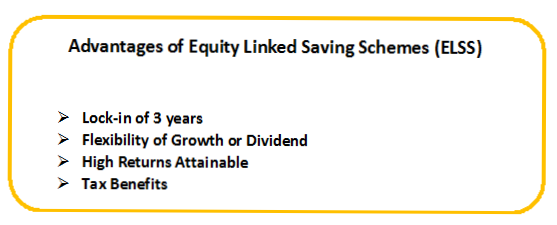
Table of Contents
Mutual Fund Taxation: How are Mutual Fund Returns Taxed?
Mutual Fund taxation or tax on Mutual Funds is something that has always kept people curious. Mutual Fund Capital gains are taxed considering certain rules and regulations. Generally, to save tax people tend to invest in Mutual Funds. But, not many people are aware that Mutual Fund returns are taxed as well under the head income tax Capital Gains. So before Investing in Mutual Funds, it is important to understand the mutual fund taxation or taxation of Mutual Funds.
Mutual Fund Taxation
Taxation of Mutual funds or Mutual Fund Taxation can be classified by 2 broad parameters:
1. Type of funds:
Category 1
Equity Funds (or ELSS funds)
Category 2
Debt, Money market funds, fund of funds (FoF), International Equity fund
2. Type of Investor
- Resident Indian
- NRI
- Non-Individual
Before knowing the taxation on Mutual Funds you must know the two options to invest in Mutual Funds. They include -
Growth Option Or Mutual Fund Capital Gains
Under this option, the returns from Mutual Funds are automatically re-invested and you get these gains only when you sell the Mutual Fund units.
Dividend Option Of Mutual Funds
Contrarily, with the dividend option, you can earn the Mutual Fund returns at regular intervals in the form of dividends. It works as a regular Income for Mutual Fund unit holders. Now, these different options are taxed according to the type of Mutual Funds. Also, Mutual Fund Taxation depends on the types of Asset Class – equity or debt, and each is taxed differently.
Talk to our investment specialist
Tax on Mutual Funds (Mutual Fund Taxation)
1) Taxation on Equity Mutual Funds (Including all Equity Oriented Schemes)
| Equity Schemes | Holding Period | Tax Rate |
|---|---|---|
| Long Term Capital Gains (LTCG) | More than 1 Year | 20% |
| Short Term Capital Gains (STCG) | Less than or equal to a year | 12.5% |
As per Union Budget 2024-25
Equity Mutual Funds are those funds that invest more than 65% in equity related instruments and the remaining in debt securities. Taxation on these funds varies for both dividend and growth options.
Growth option of Equity Mutual Funds - Depending on the holding period of Mutual Funds, there are two types of mutual fund taxation on growth options-
Short Term Capital Gains - When Equity Mutual Funds with growth option are sold or redeemed within a one-year period, one is liable to pay a short term Capital Gain tax of 12.5% on returns.
Long Term Capital Gains - When you sell or redeem your equity funds after a year of investment, you are taxed at 20% under long term capital gain tax.
2) Taxation on Debt/Money Market Funds
| Debt Schemes | Holding Period | Tax Rate |
|---|---|---|
| Long Term Capital Gains (LTCG) | More than 3 years | 20% after indexation |
| Short Term Capital Gains (STCG) | Less than or equal to 3 years | Personal Income Tax rate |
| Tax on Dividend | 25%# |
#Dividend tax at 25% + Surcharge 12% + Cess 4% = 29.12% Health & Education Cess of 4% introduced. Earlier education Cess was 3%
The other kind of Mutual Fund is debt mutual fund, which invests mostly (less than 65%) in debt instruments. Some of them include ultra-short term Mutual Funds, Liquid Funds, funds of funds etc. As for the equity funds, mutual fund taxation for debt Mutual Funds varies as well.
Growth option of Debt Mutual Funds
- Short Term Capital Gains - If the holding period of debt investment is less than 3 years, a short term capital gain tax of 30% is liable.
- Long Term Capital Gains - When the debt investments are held for more than 3 years, the returns are taxed at 20% with indexation benefit or 10% depending on the investment.
Dividend Option of Debt Mutual Fund (Debt Mutual Fund Dividend Tax)
Unlike equity Mutual Funds, a DDT (Dividend Distribution Tax) is deducted from the Mutual Fund NAV (Net Asset Value) of your debt investment.
Sample Calculation on Indexation
Taking a simple example with a purchase value of investment being INR 1 lakh in 2017 and selling it after 4 years for INR 1.5 lakhs. Index numbers are given below (illustrative). The most critical step involved here is a calculation of the indexed cost of the investment.
- Indexed cost = Cost value of the investment to be taken in calculations.
- Final value = sale value of the investment (INR 1.5 lakhs in the above case)
| Years of Purchase | Index Cost | Value of Investment |
|---|---|---|
| 2017 | 100 | 100,000 |
| 2021 | 130 | 150,000 |
| Holding Period - 4 years (qualifies for LTCG) | ||
| Index Value of Investment = 130/100 * 1,00,000 = 130,000 | ||
| Capital Gains = 150,000 - 130,000 = 20,000 | ||
| Capital Gains Tax = 20% of 20,000 = 4,000* | ||
| Surcharge and cess to be added |
Now that you know the Taxes liable on different kinds of Mutual Funds, you should try to get the best out of it by choosing the right Mutual Funds. The above is a guidance Basis the tax structure for FY 2017-18, choosing an investment one should look at the relevant tax structures, for e.g. in debt schemes going for dividend option in the short run may invite lower tax. However, before making any decision one should get an opinion from an independent tax adviser and take action. Earn better returns, save more!
All efforts have been made to ensure the information provided here is accurate. However, no guarantees are made regarding correctness of data. Please verify with scheme information document before making any investment.











Very good information.
That is the professional way to go. Thorough, easy to understand, illustrations to make an average investor get clear understanding of the subject. Keep it up. Thanks.